PC Specialist Defiance V RTX Review
September 12, 2019 | 12:00
Companies: #intel #nvidia #pc-specialist
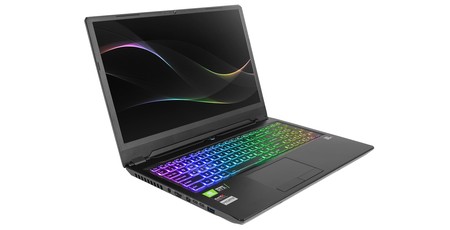
Performance Analysis
The RTX 2080 Max-Q GPU was never going to struggle in gaming. Deus Ex: Mankind Divided on Ultra is one of the toughest benchmarks even today, and a result of 71fps average indicates that the vast majority of titles will hit 60fps or more even with maximum settings, while easier-to-run games will be able to make full use of that 144Hz refresh rate. The Asus ROG Zephyrus S GX701 is faster still due to using a slightly higher TDP variant of the GPU plus a pre-applied overclock, but then it is massively more expensive.
PCMark 10 Photo Editing is a great test for combining CPU and GPU horsepower, as it leverage GPU acceleration techniques, so it’s again no surprise to see the Defiance V RTX near the top of the charts. It is again beaten by more expensive Alienware and Asus models, which use a higher-boosting CPU and faster GPU respectively.
The HandBrake video encoding and Cinebench rendering benchmarks are both fully CPU-limited and place maximum stress on all cores and threads. Here, sadly, the Defiance V RTX falls down a bit, as it’s beaten by laptops running the older and supposedly slower Core i7-8750H CPU and massively trounced by the Gigabyte Aero 15 Classic-SA, which uses the same 9th Gen CPU (and slightly faster memory).
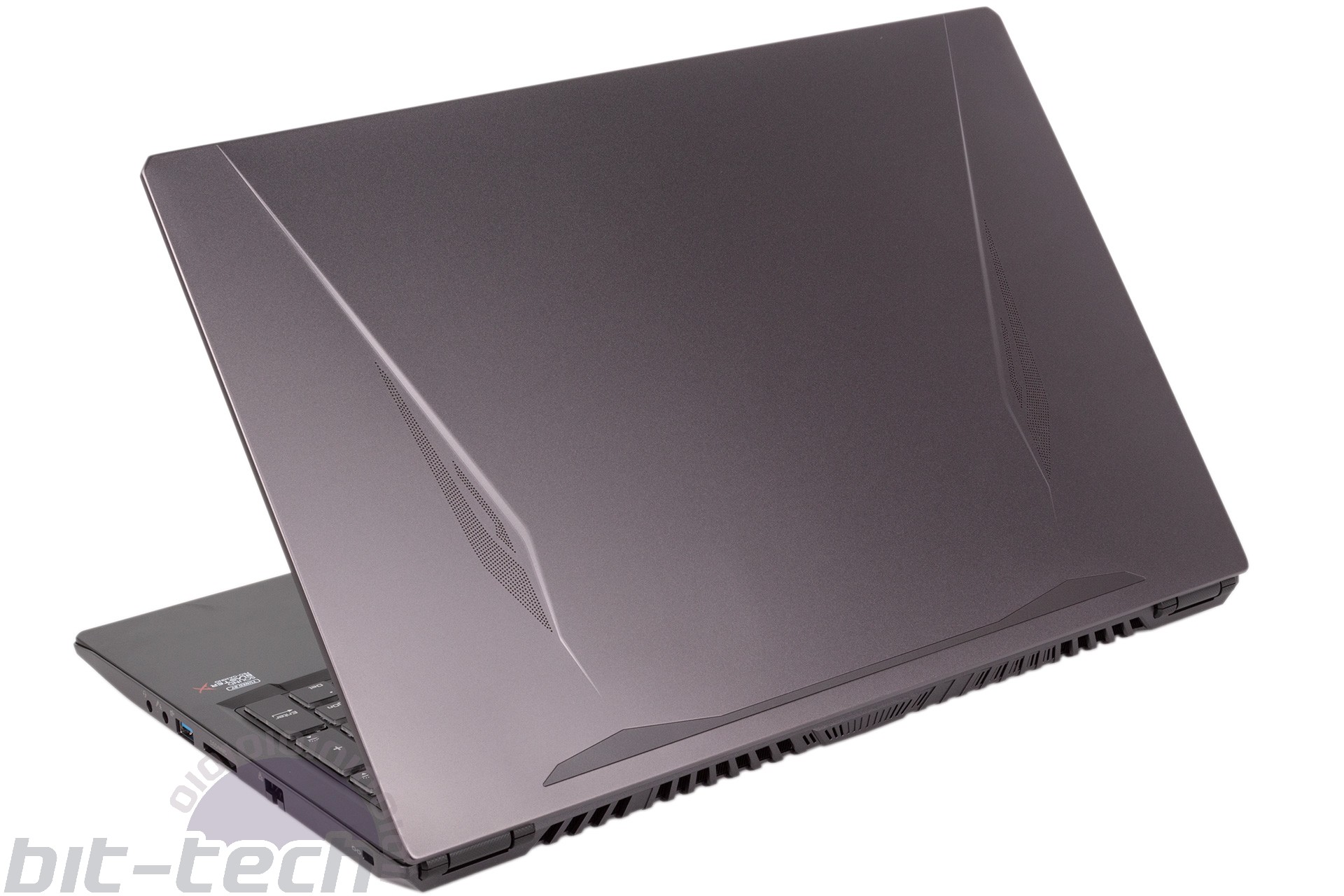
That said, it does beat the PC Specialist Recoil II with the Core i7-8750H, a laptop we also noted as being (relatively) slow in CPU-bound workloads. Our suspicion again is that PC Specialist might be taking advantage of the Intel CPU’s lower TDP state (35W instead of 45W), which would affect boosting. Either that, or the cooling solution isn't up to scratch, but thermal testing makes us doubt this. Indeed, a full-blown stress test with Prime95 results in all-core boosting of 2.8GHz-2.9GHz, whereas the same CPU in Gigabyte’s laptop was hitting 3.3GHz-3.5GHz. For a gaming laptop, it’s perhaps not a huge deal, but it could result in some FPS loss, especially with less demanding games that are likely to run at 100fps or more.
You’ll get around an hour of playable gaming with this unit, which is about the minimum we expect but far from the worst we’ve seen. It’s also much better than the last RTX laptop we saw from PC Specialist, the Recoil II, which managed just 35 minutes. Our Productivity battery test sees a score of about 3.5 hours, so all-day working is not really viable.
The Samsung SSD delivers excellent results across the board. This is one component we have zero complaints about – it’s lightning fast and very responsive.
The integrated display is also very well tuned out of the box. It gives you full sRGB gamut coverage, close-to-ideal gamma curves and white points, and a surprisingly good contrast ratio for a TN panel. A peak brightness of around 280cd/m2 is on the low side, but that’s our only real complaint, as uniformity measurements are solid and colour accuracy is astonishingly good with an average delta E value of below 1. Many of these results would make more premium laptops jealous, so kudos to PC Specialist (and the OEM Clevo).
The fans are a little on the loud side when idle, but under load they’re not awful, although as with any gaming laptop you’re definitely going to hear them. The GPU and CPU hit around 80°C and 90°C respectively under a sustained gaming workload, which are safe temperatures even if we wouldn’t want to see much higher. The GPU is never below around 1,200MHz, which is good, but there’s a lot of fluctuation with frequent spikes up to a maximum of around 1,500MHz as a result of the tight power limit and thermally constrained environment.
Conclusion
From most angles the Defiance V RTX is an impressive laptop. While its OEM chassis means it loses out on build quality and sleekness relative to competitors, Clevo has come a long way in recent years, and the Defiance V RTX really doesn’t look or feel all that bad compared to plastic-fantastic units of yesteryear. The battery life could also be higher, and we’d be interested to see what a similar size laptop could do if it went without the 2.5” bay and stuck to M.2 slots only, leaving room for a larger battery. We’d also prefer the idle fan speed to be less intrusive and the screen to have a higher maximum brightness.
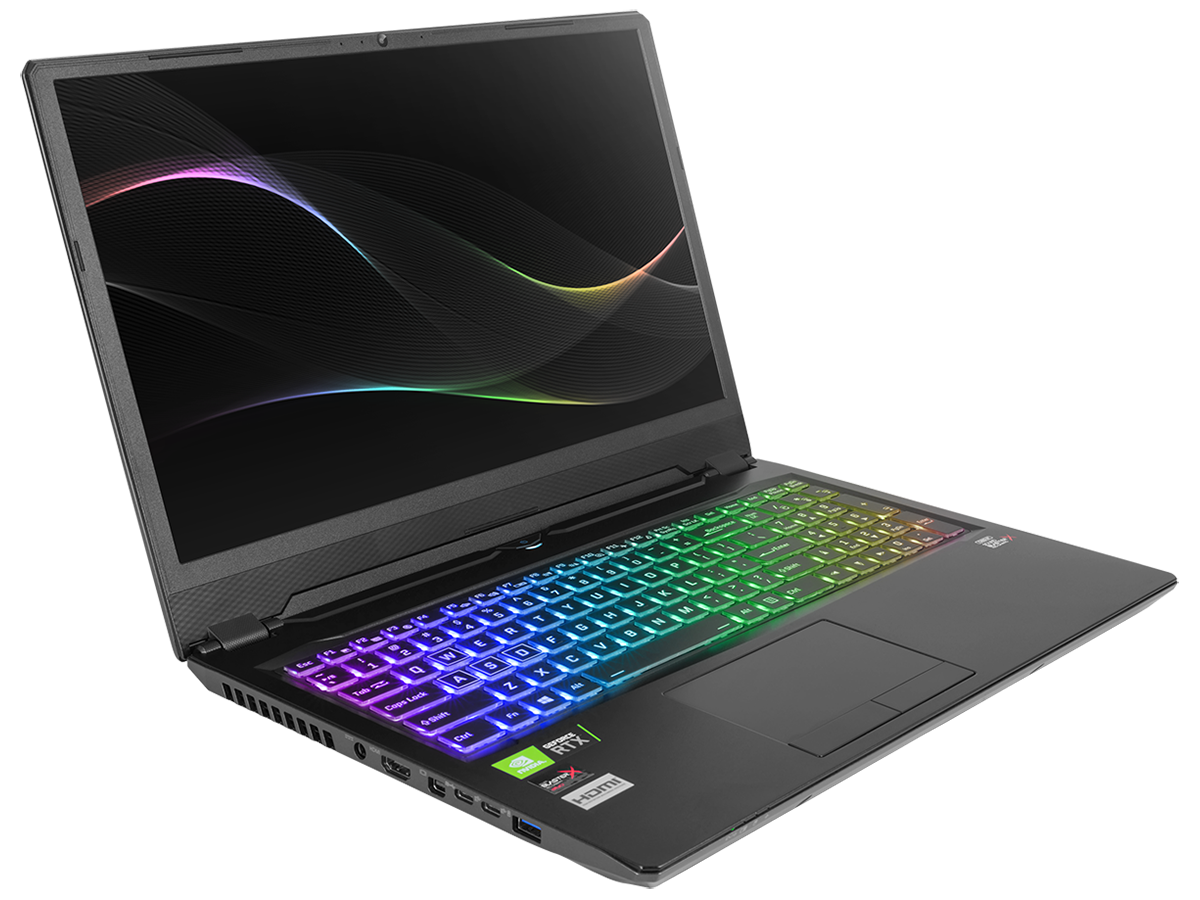
Those niggles, however, are really the only negatives we can chuck at this laptop. Yes, the CPU seems tuned to be a bit slower than it otherwise could be, but the focus here is clearly gaming, and there’s still enough CPU grunt to keep the beastly GPU nicely fed. And what a beast it is – having this level of GPU horsepower in a £1,900 laptop is no mean feat, and the value here is excellent. The 144Hz display with solid colour performance will let users get the most out of it too, and PC Specialist hasn’t made any silly compromises on the SSD or RAM either. Connectivity is also up to scratch, although accessing the internals could be easier.
It’s certainly not perfect, then, but we reckon PC Specialist has really hit the nail on the head with value for money here without sacrificing anything major elsewhere. If you’re looking for the maximum mobile gaming performance for as little cash as possible, this is quite possibly the best option out there.


MSI MPG Velox 100R Chassis Review
October 14 2021 | 15:04

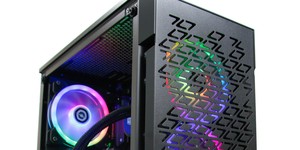
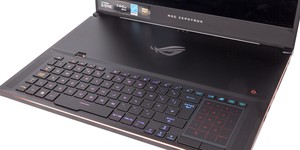





Want to comment? Please log in.